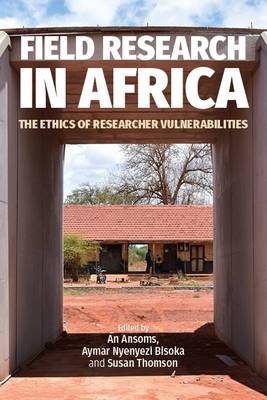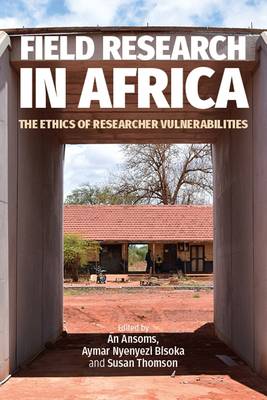
Bedankt voor het vertrouwen het afgelopen jaar! Om jou te bedanken bieden we GRATIS verzending (in België) aan op alles gedurende de hele maand januari.
- Afhalen na 1 uur in een winkel met voorraad
- In januari gratis thuislevering in België
- Ruim aanbod met 7 miljoen producten
Bedankt voor het vertrouwen het afgelopen jaar! Om jou te bedanken bieden we GRATIS verzending (in België) aan op alles gedurende de hele maand januari.
- Afhalen na 1 uur in een winkel met voorraad
- In januari gratis thuislevering in België
- Ruim aanbod met 7 miljoen producten
Zoeken
Field Research in Africa
The Ethics of Researcher Vulnerabilities
Aymar Nyenyezi Bisoka, Susan Thomson
Paperback | Engels
€ 48,45
+ 96 punten
Omschrijving
Researchers working in Africa are engaged in ethical, methodological, logistical, emotional and professional compromises. Juggling the demands of being a researcher and being human, scholars must balance the recording of data withthe emotional demands of listening, of analyzing and reporting personal, and often contradictory, narratives. This book recognizes these challenges and lays bare the underlying and important process by which the researcher grapples with emotions, and how 'feelings' inform and shape data collection, interpretation, write-up and dissemination. Based on widely researched on-the-ground work, the contributors reveal the ambiguities and inconsistences that emerge at all stages of fieldwork and how to tackle them. They examine the ethical quagmires that arise when doing research on sensitive topics in a researcher's own living environment, and suggest how to manage the complex interaction between the researcher's own identity and social relationships in the field, and navigate the role of researcher when activism risks access to the field.
Specificaties
Betrokkenen
- Auteur(s):
- Uitgeverij:
Inhoud
- Aantal bladzijden:
- 192
- Taal:
- Engels
Eigenschappen
- Productcode (EAN):
- 9781847012692
- Verschijningsdatum:
- 18/06/2021
- Uitvoering:
- Paperback
- Formaat:
- Trade paperback (VS)
- Afmetingen:
- 150 mm x 226 mm
- Gewicht:
- 272 g

Alleen bij Standaard Boekhandel
+ 96 punten op je klantenkaart van Standaard Boekhandel
Beoordelingen
We publiceren alleen reviews die voldoen aan de voorwaarden voor reviews. Bekijk onze voorwaarden voor reviews.









